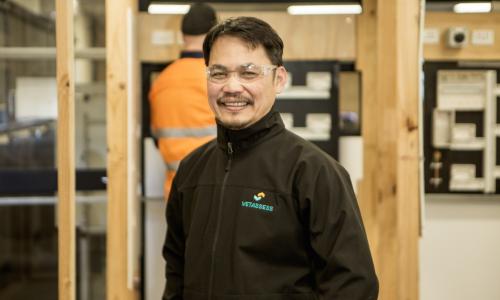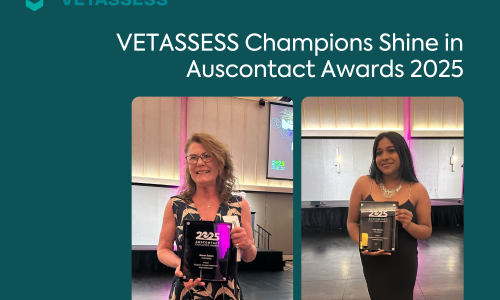The demand for skills is growing exponentially around the world as prosperity increases and the pace of technological change forces new ways of working.
There is significant demand in Australia for agriculture and construction skills, to name just two sectors with shortages. This isn’t just an Australian issue, however. Countries in Europe and the Arabian Gulf are looking at importing skills to address shortages in their domestic markets.

Challenges for skilled migration
As we address this global issue, we have to grapple at a national level with the differences in how migrant skilled workers are trained, and how these are reflected in the qualifications and experience they will bring when they cross our borders.
An individual’s talents can be missed when an employer does not understand the nature of the qualification and the skills obtained in another country. There is a direct impact on industry if there is a mismatch between the skills available and those required, or an individual has the skills required, but this are not obvious to the hirer. This loss has an impact on the wider economy when it flows through to productivity and competitiveness.
Digital credentials
VETASSESS is part of the Groningen Declaration Network that is working towards a global, digital ecosystem for credentials that enables qualifications to be recorded and easily accessible in digital format.
We showed how this worked in Australia in 2020 when we partnered with the Victorian Government to develop short online training courses for people who had lost their jobs due to COVID-19.
The courses provided upskilling for new jobs that were in demand due to the virus and we developed digital badges that people could post to their professional job site or send to an employer.
A digital badge is information rich – an employer can click on the badge to find out exactly what a course contains.
It’s a modern solution that enables an employer in any country to check someone’s qualification and it can enhance employability because not every qualification is the same and job candidates bring new skills and experience. The employer can quickly see if there is a skills gap.
Measuring the skills gap
If you are to address skills gaps, you need to measure them.
We’ve been involved with comparing the Indian Qualifications Framework with the Australian Qualifications Framework and our staff work with the Australian framework when we conduct skills assessments for Australian migration purposes.
It’s important to have staff who understand the qualification and the industry and who can work closely with assessing authorities. This is not just about benchmarking, it’s also about knowing industry trends.
We also partner with industry professional bodies such as the Australian Marketing Institute and Institute of Management Consultants, who can inform us if qualifications are changing or skills need updating.
We’re currently involved in conducting independent verification of assessment in Australia, assessing whether recent graduates from technical and vocational education are job ready. We’ve found that having industry reference groups to consult has been essential to gaining employer support for this project. These groups are comprised of employers from industry and they are an invaluable source to advise on the current skills their sector needs as well as the changes they can foresee.
Soft skills for migrants
We continue to see demand for people with “soft skills” as well as technical and professional knowledge and experience.
In Australia, as in other migrant nations, you will be working in multicultural environments. You need to be tolerant of other cultures.
Employers value the new skills and ideas that migrant workers bring but they also need people who can adapt to their workplace and adjust to change.
The ability to communicate effectively and work well in a team is increasingly important as the pace of technological change and economic challenges force us all to find new ways of working.
by Rob Thomason
Rob Thomason is Executive Director of VETASSESS. This blog is based on comments he made to the Confederation of Indian Industry 9th CII Global Summit on Skill Development, held in December 2020.
VETASSESS is Australia’s leading provider of skills assessment services for migration and employment purposes and assesses skills across more than 341 general professional and 32 trade occupations against Australian standards.
About VETASSESS
For more than 25 years VETASSESS has provided tailored, independent assessment services to governments, education sectors and industries globally.
We have pioneered assessment services to recognise and verify individuals’ qualifications, skills and experience for migration purposes against the requirements of 341 professional and 27 trade occupations.



